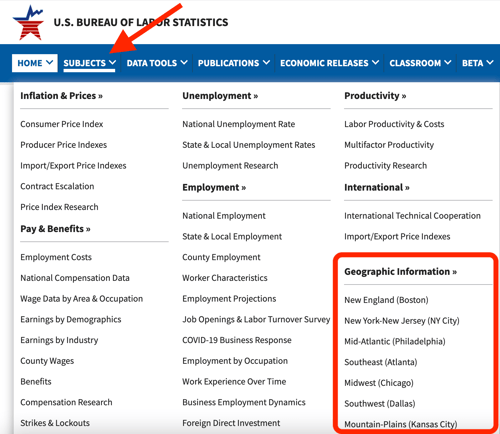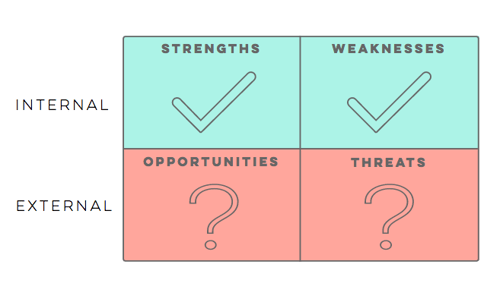Product marketing interviews are tricky—it’s inevitable, given the interdisciplinary nature of the role. If you’re a hiring manager, it can be overwhelming trying to narrow down the list of potential questions. And if you’re a candidate, it can be overwhelming trying to prepare for all the questions you might be asked.
To help both parties, we’ve compiled a list of eight essential questions:
- Can you walk me through your last product launch?
- In retrospect, what would you have done differently?
- What steps would you take to increase adoption of an underused feature?
- How would you respond if a direct competitor launched a feature that we introduced to the market last year?
- If we lose a deal, and you’re given the opportunity to speak with the buyer, what is one question you would ask?
- What are the keys to building and maintaining strong relationships with sales reps?
- What steps would you take to ensure that an increase in price or change in packaging goes over smoothly?
- What’s an underrated product marketing KPI?
For each of these, we’re going to provide an explanation as to why hiring managers should ask it as well as a pro tip for diligent candidates.
Download the Guide to Building a Successful Product Marketing Team1. Can you walk me through your last product launch?
Why hiring managers should ask this question: If there’s one responsibility that captures the full breadth of product marketing, it’s the product launch. Positioning, messaging, sales enablement, internal communications, competitive intelligence—a lot of skills are put to the test when you’re bringing something new to market.
Pro tip for candidates: Don’t assume that the hiring manager wants to get into the nitty gritty of everything you did. Provide a brief, high-level overview of what your company launched, what you (as a contributor) executed, and how it all worked out (share a success metric or two). And then you can offer to dive into the specifics of how you tackled your individual responsibilities.
2. In retrospect, what would you have done differently?
Why hiring managers should ask this question: No product launch is perfect, and each one is a learning opportunity. Diligent product marketers take the time to assess their work, identify shortcomings, and set corresponding goals for the future.
Pro tip for candidates: Be specific. This is an excellent opportunity to showcase your attention to detail. Don’t say this: “I would’ve spent more time training our sellers.” Say this instead: “I would’ve spent more time training our sellers on [insert functionality]. It’s pretty technical, and early demo recordings revealed that few of our sellers truly understood it out of the gate. I have no doubt that this cost us some winnable deals.”
3. What steps would you take to increase adoption of an underused feature?
Why hiring managers should ask this question: Given that they’re constantly working with folks in sales, marketing, account management, and customer success, product marketers can exert a tremendous amount of influence on feature adoption.
Pro tip for candidates: Don’t dive straight into tactics (e.g., “I’d organize a customer webinar.”). Begin your answer by discussing some of the datapoints that you might consult in order to figure out which tactics are appropriate (e.g., “I’d segment the adoption rate by industry.”).
4. How would you respond if a direct competitor launched a feature that we introduced to the market last year?
Why hiring managers should ask this question: Competitor activity can be a source of panic and confusion. Product marketers need to be able to determine what happened, why it matters to each stakeholder group, and how (if at all) those groups can take action.
Pro tip for candidates: Take some time to talk about establishing the so what. Responding to competitor activity in an efficient and coordinated manner is impossible unless everyone has bought into the notion that a response is actually warranted.
5. If we lose a deal, and you’re given the opportunity to speak with the buyer, what is one question you would ask?
Why hiring managers should ask this question: Product managers and sellers alike need an up-to-date understanding of why deals are being lost. Product marketers spend ample time with both of these groups, thus making them strong candidates for win/loss analysis (assuming you haven’t outsourced it to a third party).
Pro tip for candidates: Here’s one: “How would you rate our demo experience?” Collecting quantitative win/loss data can help you and your colleagues prioritize potential tweaks to the sales enablement process. If, on average, the buyers you lose give your demo experience an 8/10, then you know your efforts are probably better invested elsewhere.
6. What are the keys to building and maintaining strong relationships with sales reps?
Why hiring managers should ask this question: Good things happen when sellers trust and have faith in their product marketing colleagues. They’re more likely to ask for help, share field intel, and adopt critical pieces of collateral (e.g., battlecards).
Pro tip for candidates: Visibility is a big one. By making the effort to be around your sellers (either physically in the office or virtually on team calls), you’ll not only prove that you’re invested in their success, but also absorb knowledge that will subsequently enable you to be a better partner. You might learn, for example, about certain stages in the sales process that are creating roadblocks, certain features that are causing confusion, or certain kinds of prospects that are opting for alternate solutions.
7. What steps would you take to ensure that an increase in price or change in packaging goes over smoothly?
Why hiring managers should ask this question: Empathy is one of the defining characteristics of a good product marketer, and perhaps no occasion requires a greater dose of empathy—both for customers and the people who support and sell to them—than an increase in price/change in packaging.
Pro tip for candidates: Discuss not only the steps you would take with customers, but also the steps you would take with coworkers. Customer success managers may worry about their churn numbers spiking. Account managers may worry about falling short of their upsell quotas. To keep things copacetic with these folks, one tactic you might discuss is the use of data to prove that your customer base is relatively insensitive to price changes (or at least insensitive enough for the change in question to be acceptable).
8. What’s an underrated product marketing KPI?
Why hiring managers should ask this question: Measuring the efficacy of product marketing may not be as straightforward as measuring that of, say, SEO, but it needs to be done all the same. This question is a fun way to address an important (and somewhat controversial) topic.
Pro tip for candidates: Obviously, there are no wrong answers here. Revenue, retention, win rates, product adoption, collateral adoption—there’s no shortage of KPIs to pick from. Just make sure you have an anecdote to back up your answer. In your experience, has tracking win rates helped you make your sales team more competitive? Has tracking product adoption helped you improve your customer marketing efforts? It really doesn’t matter what you say, as long as you’re convincing and thought-provoking.
Parting words of advice for hiring managers
Finding the right product marketer can be a long, arduous process—one that’s well worth the effort. There’s a reason we listed revenue, retention, and product adoption as potential KPIs for candidates to discuss: Product marketing can be the tide that lifts all boats.
For more insight, check out the Guide to Building a Successful Product Marketing Team. It’s free to download, and it comes with job description templates, skill set breakdowns, and team organization tips. Click the banner below to get your copy!

Seeing is believing! Check out Crayon for yourself.
Take a Product TourRelated Blog Posts
Popular Posts
-
 The 8 Free Market Research Tools and Resources You Need to Know
The 8 Free Market Research Tools and Resources You Need to Know
-
 How to Create a Competitive Matrix (Step-by-Step Guide With Examples + Free Templates)
How to Create a Competitive Matrix (Step-by-Step Guide With Examples + Free Templates)
-
 6 Competitive Advantage Examples From the Real World
6 Competitive Advantage Examples From the Real World
-
 24 Questions to Consider for Your Next SWOT Analysis
24 Questions to Consider for Your Next SWOT Analysis
-
 How to Measure Product Launch Success: 12 KPIs You Should Be Tracking
How to Measure Product Launch Success: 12 KPIs You Should Be Tracking



